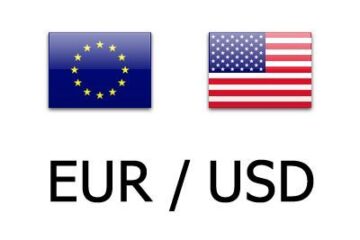When comes to cybersecurity, the advice is simple: “Never trust, always verify.”
How you implement that strategy in the treacherous landscape of malware, spoofing, password attacks and other cyberscams, however, is becoming increasingly complex.
Related: Analysts retool C3.ai stock price target after earnings
In 1994, Stephen Paul Marsh is credited with coining the term “zero trust” in his doctoral thesis on computer security at Scotland’s University of Stirling, with the idea that by default users and devices should not be trusted.
This was long before people were seriously talking about artificial intelligence, which industry analysts say is now being applied on both sides of the law.
“With its ability to process vast amounts of data, recognize patterns, and make split-second decisions, AI offers the potential to bolster our digital defenses,” Deloitte analysts said in a report last year.
But like any powerful tool, the study warned, “AI can be a double-edged sword.”
“It holds the key both to fortifying our security and to unleashing new forms of cyber threats,” Deloitte said.
AI can be employed in social engineering attacks, where it generates convincing phishing messages tailored to exploit individual vulnerabilities, leveraging a new technique referred to as deepfake, the firm said.
Analysts react to Zscaler’s latest earnings report.
Shutterstock
Zscaler CEO says ‘we are on a mission’
The report cited several examples, including a 2020 case where a cryptocurrency platform was targeted by a voice-spoofing attack. The effort used AI to impersonate the CEO’s voice and tricked an employee into transferring $243,000 to a fraudulent account.
More recently, OpenAI, the Microsoft (MSFT) -backed firm behind ChatGPT, said on Thursday it had disrupted five covert influence operations that sought to use its artificial intelligence models for “deceptive activity” across the internet, according to Reuters.
Related: Analysts revamp Salesforce stock price targets after earnings
The company said the threat actors used its AI models to generate short comments, longer articles in a range of languages, and made-up names and bios for social-media accounts over the past three months “in attempt to manipulate public opinion or influence political outcomes.”
Zscaler (ZS) is looking to protect its customers from cyberassaults.
The San Jose, Calif., cloud-security company reported fiscal-third-quarter earnings on Thursday, and Jay Chaudhry, founder, chairman and chief executive, told analysts that “we are on a mission to take our platform everywhere so customers can benefit from better security, simplified IT operations, and improved user productivity.”
“We expect demand to remain strong as an increasing number of enterprises are planning to adopt our platform for better cyber and data protection,” Chaudhry said during the earnings call. “Zero Trust security remains our top initiative for IT teams as legacy castle-and-moat firewall-based security is ineffective in the new world of cloud and AI.”
Chaudhry said Zscaler’s Zero Trust Exchange, which the company said is the world’s largest cloud-security platform, processes more than 400 billion transactions and prevents billions of security and policy violations per day.
The platform prevented more than two billion phishing attempts last year, he said, a 60% increase year over year.
Wedbush’s Ives: ZS ‘a top name in this space’
“We are leveraging AI to automatically classify data and enforce policies for better data-loss prevention,” Chaudhry said. He warned that “shortfalls in legacy security will continue to be exploited until enterprises embrace Zero Trust Architecture and phase out firewalls and VPNs.”
Zscaler posted earnings of 88 cents a share, up from 48 cents in the year-earlier quarter and beating analysts’ estimates of 66 cents a share. Revenue surged 32% to $553.2 million, missing Wall Street’s call for $583.7 million by 5.2%.
Billings rose 30% to $628 million, topping estimates for $583.7 million.
More AI Stocks:
Analysts retool C3.ai stock price target after earningsAnalysts revamp Salesforce stock price targets after earningsVeteran fund manager issues blunt warning on Nvidia stock
Several firms issued research reports following the company’s earnings report.
Wedbush analyst Dan Ives maintained his outperform rating and $260 share price target. He said in a research note that Zscaler’s results “featured impressive top- and bottom-line beats yet again while raising [fiscal 2024] guidance across the board, which will be viewed positively by [Wall Street] in this environment.”
“Overall, we continue to believe that ZS is a top name in this space to own as this cloud cyber security shift further [accelerates. This] was a very impressive quarter in a choppy software deal environment as the company is in the early innings of extending its zero trust architecture and protecting cloud workloads, which is a top priority for enterprises,” Ives said.
JP Morgan raised the investment firm’s price target on Zscaler to $205 from $200 and affirmed a neutral rating on the shares.
Related: Analysts compute new HP stock price target after earnings
The company reported much stronger-than-expected results including revenue, operating profit, billings and cash flow, JPM said.
JPMorgan said Zscaler executed very well this quarter despite higher-than-expected attrition in its sales capacity.
Barclays analyst Saket Kalia raised the investment firm’s price target on Zscaler to $210 from $205 and reiterated an overweight rating on the shares.
Zscaler came in ahead of upside expectations with 30% year-over-year growth in third-quarter billings, and flowed through the beat to its fiscal 2024 guide, removing the bear case on the fourth quarter, Kalia said.
The analyst said management’s commentary on the earnings call would bring consensus closer to its 20% fiscal 2025 estimate, “making the stock more investable.”
Related: Veteran fund manager picks favorite stocks for 2024


